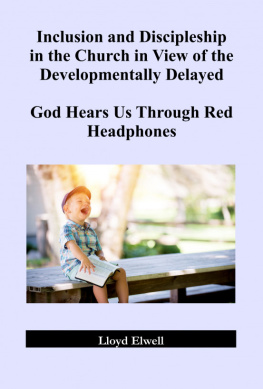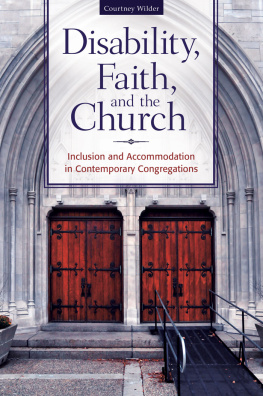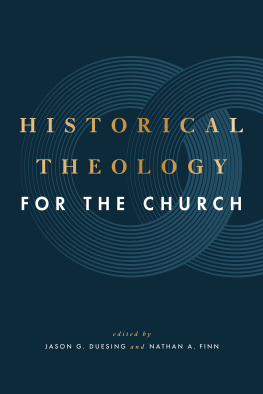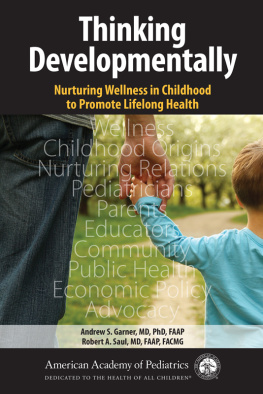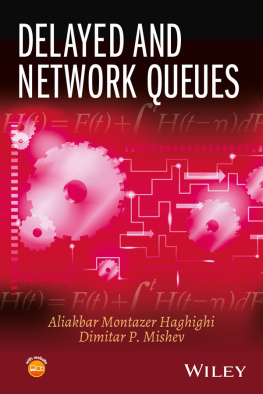Inclusion and Discipleship in the Church inView of the Developmentally Delayed
God Hears Us Through Red Headphones
By Lloyd Elwell
Cover photo:https://static.pexels.com/photos/160191/pexels-photo-160191.jpeg
ISBN: 9781370584024
Copyright 2017
Introduction
On the morning of August 13, 1981, Mary, mywife, gave birth to our youngest son, Sean. In the recovery room, Istood next to Marys bed holding her hand with my back to the door.The doctor silently entered the room and while my back was turnedto her she simply said, There is a problem. Our lives changed, atthat moment, in ways we could not imagine. Our emotions plunged, inan instant, from the highs of the joy at the birth of our secondson to fear, despair and to the ever-present guilt. My wife, aspeech pathologist who works with the developmentally delayedcommunity, was much more prepared for what was to follow. I was abiology major and medical technologist. Although I knew somethingabout genetics and some medical conditions, I was unprepared forthe deluge of new medical words and phrases that would follow. Ihad much to learn.1
Thankfully, the developmentally delayed havegarnered some attention through various laws for the handicappedand other movements such as Special Olympics. Since their handicapsseem to be more involved, more severe and more incapacitating tous, developmentally delayed people, as a group, tend to stand outlooking and acting different, which frightens some. Their actionsand behaviors can be odd or even disturbing. This may interrupt thequiet, stately, solemn atmosphere in church, and at best is metwith grudging toleration, or unfortunately at times, with anger andrejection. Nearly all parents of a developmentally delayed childhave gotten that call from someone who, hopefully politely, tellsthem that their child is no longer welcomed. In our case, it was alocal scout day camp that Sean and his mother attended together.Too many times, however, it is the church that excludes thispopulation.
Certainly, the parents of a normal childhave a right to protect their children; we all as parents want toguard our children from perceived bad influences, as I did for myother son. And it can be quite a challenge to include thedevelopmentally delayed due to their sometimes erratic behaviors.However, the church, of all places, should be setting the pace forincluding the developmentally delayed community, striving toprovide accommodations, patience and understanding, as well asforgiveness and love. Developmentally delayed people may seem to beincapable of understanding, but a failure to actively include,embrace and disciple them will be a loss, not only for them, butalso for the church, for we humans are all made in the image of Godand included in the vicarious humanity of Christ.
In this paper, I will focus closely on thedevelopmentally delayed, without endeavoring to cover all thephysically, intellectually and emotionally disabling situationsextant in the world. In chapter 1, I will a) define what is meantby developmentally delayed, b) look at some of the more commoncauses, c) include some statistics on its prevalence, and d)provide a short history of how this population has been variouslyperceived through history.
In chapter 2, I will look at the theology ofwhat I call the a) objective inclusion of the developmentallydelayed and b) ministry with them. This section will include asurvey of the subject of imago dei biblically, historicallyand theologically. I will discuss how different concepts ofimago dei have affected the outlook of the church ondisabilities historically and also how modern secular thoughts ofpersonhood have affected Western societies outlook. This sectionwill include an exegesis of Luke 14:15-23, Jesus parable of thebanquet, which I feel best informs this aspect of theologicalinclusion.
Ministry with the developmentally delayedwill then be explored. This group of disabilities is fairly new,due to the fact that natural mortality was high among childrenwith disabilities.2 It is only with the advent ofmodern medicine that large numbers of these individuals, especiallythe more severely involved, have been able to long survive. Withthe rise of the Industrial Revolution, a program, then consideredlogical and progressive, was ushered in to deal with various socialproblems by establishing specialized institutions that weredesigned specifically to accommodate people who could not meet thedaily living demands of their environment.3 Sendingdevelopmentally delayed people away to asylums or homessegregated from common society is, I will argue, not the best forthem or for us (the nonmarginalized). We will therefore exploredevelopmentally delayed peoples needs when it comes to discipling,and offer practical suggestions on how they might be activelyincluded and embraced by the church. Finally, practical aspectswill be discussed on the development of an inclusive and embracingchurch.
In chapter 3, I will develop what I willcall the theology of subjective inclusion of the developmentallydelayed and their ministry to the church. It will include adiscussion on the vicarious humanity of Christ as given to us byIncarnational Trinitarian theology and how it applies, drawing fromthe writings of T. Torrance, M. Volf, H. Nouwen, J. Vanier, J.McSwain and others. This will include a short exegesis of twoparables of Luke 15, the Parable of the Lost Sheep (Luke 15:1-7)and the Parable of the Prodigal Son (Luke 15:11-31), which I thinkbest informs this theology of subjective inclusion.
Whereas before I surveyed possibleexpressions of the ministry of the church with thedevelopmentally delayed, here I will explore the converse,i.e., positive aspects of the ministry of the developmentallydelayed to the church. It may surprise some that thedevelopmentally delayed actually have a ministry to the church!Just as we have gifts, so do they. Just as we may lead, so mightthey. Just as we have a priestly position, so do they. In fact, itis in their vulnerability that we get insights into what it is tobe human, to learn that caring is giving but also receiving. Thedevelopmentally delayed can enable us to see Christs leadership inthem and become aware of this dynamic in all of us. For thisreason, the church is uniquely positioned to lead initiatives notonly for including the developmentally delayed, and not only foracceptance and embrace, but also for the health of the largercommunity. I believe the church is Gods vehicle to reveal that weare better together and that we belong to each other, not becauseof someones arbitrary rules of belonging, but because of ourshared being in the One in whom we all belong.
My conclusion will draw together both theobjective and subjective theology of inclusion and ministry. Thedevelopmentally delayed are made in the image of God, just as thenormal person. Although they may be vulnerable in the world, theyare not meant to be merely objects of pity to the church ordemeaned to a status of being targeted for practical acts ofcharity. Rather, by including and building relationships with thedevelopmentally delayed in community, God reveals every humansinclusion in the vicarious humanity of Jesus Christ. In doing this,God gifts the developmentally delayed and sends them into ministryto us, the normal, to lead and teach us about humanity andourselves.
Chapter 1 What Is Developmental Delay?
Definitions
Descriptive terms have been used for thedevelopmentally delayed throughout history, and many terms havebecome controversial or been misused. It is hard to imagine todaythat words such as idiot, moron, feeble-minded,cretin and fool were acceptable labels used to describethe members of this group. Originally, they were simply wordsdescribing the developmentally delayed and often were valueneutral.4 With extended use, these words becamepejoratives, or were used to discriminate and restrict. Onlyrecently, since the early twentieth century, have thedevelopmentally delayed been classified and describedscientifically to ascertain any supports needed in learning anddaily life and to broaden the understanding ofdisabilities.5
Next page
